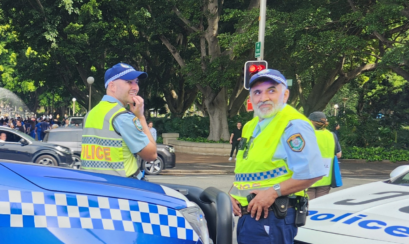[Editor’s note: The law in NSW was changed in May 2022. Please see Wills and voluntary assisted dying (VAD) law in NSW.]
Voluntary assisted dying is the next big controversial topic that could come up for legislation in NSW, after Victoria became the first state in Australia to legalise it.
The Victorian Voluntary Assisted Dying Act 2017 came into effect on 19 June 2019. Under this legislation, Victorians who are at the end of their life and are suffering due to an incurable advanced disease or medical condition can now request access to voluntary assisted dying.
Western Australia is set to implement similar legislation on July 1 2021 and Tasmania will also follow suit, after passing relevant legislation in March 2021.
Victorian eligibility criteria for voluntary assisted dying
Initiating this process themselves, Victorians must pass strict eligibility criteria before being assessed by two medical practitioners, who confirm the condition will cause death within 12 months.
Mental illness or disability are not grounds for access to voluntary assisted dying.
The legislation only applies to people who have lived in Victoria for at least 12 months.
Is NSW likely to introduce a safe legal framework for voluntary euthanasia?
While there is no such law in NSW, there is a push for a plebiscite to be held alongside the next election, so that voters can decide whether to legalise voluntary assisted dying. A number of NSW politicians are strong advocates for a public vote on this controversial matter. (See Pressure grows to make euthanasia legal in NSW.)
However, after the political battle over decriminalising abortion, premier Gladys Berejiklian seems determined there will be no more conscience votes in this term of parliament.
Documenting your preferences for care when nearing end of life
Because I specialise in wills, I meet many people who are suffering terrible pain and want to know if they can add the request not to be given medical help to keep them alive.
However, a will only operates upon death, so any clause relating to loss of capacity would be pointless.
However, a person can sign an Enduring Power of Attorney which allows them to appoint somebody else – usually a spouse or adult child – to make financial decisions on their behalf.
There is also an Enduring Guardian document, sometimes called a Living Will, which allows people to appoint another person to make health decisions on their behalf when necessary and to choose where they should live, such as a nursing home. (For more information, please see Power of Attorney and Enduring Guardianship – the horror story edition.)
NSW residents can request not to get artificial life support
The Enduring Guardianship document can have an “advanced care directive”. This demonstrates a desire to turn off life support if a person is in a terminal or irreversible illness, permanently unconscious, in a persistent vegetative state, or so seriously ill there is no real chance of recovery without artificial life-sustaining measures.
The guardian has the authority to direct the medical practitioner to such a request, which increases chances of life support being turned off. It is not euthanasia, but it is the closest thing to it at present under NSW laws. It is ultimately up to medical practitioners to make the decision.
Before selecting a guardian, it’s wise to get legal advice. This is because in some cases, it may be best to appoint one guardian. However, in other circumstances, the better choice could be to appoint two or three children as guardians and instruct that no decision can be made without the signature of all.














